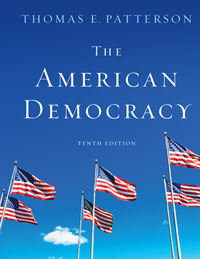| authority | The recognized right of officials to exercise power as a result of the positions they hold.
|
 |
 |
 |
| constitutionalism | The idea that there are definable limits on the rightful power of a government over its citizens.
|
 |
 |
 |
| corporate power | The power that corporations exercise in their effort to influence government and maintain control of the workplace.
|
 |
 |
 |
| democracy | A form of government in which the people govern, either directly or through elected representatives.
|
 |
 |
 |
| elitism | The notion that wealthy and well-connected individuals exercise power over certain areas of public policy.
|
 |
 |
 |
| free market system | An economic system based on the idea that government should interfere with economic transactions as little as possible. Free enterprise and self-reliance are the collective and individual principles that underpin free markets.
|
 |
 |
 |
| judicial action | The use of courts of law as a means by which individuals protect their rights and settle their conflicts.
|
 |
 |
 |
| majoritarianism | The idea that the majority prevails not only in elections but also in policy determination.
|
 |
 |
 |
| pluralsim | A theory of American politics that holds that society’s interests are substantially represented through power exercised by groups.
|
 |
 |
 |
| political science | The systematic study of government and politics.
|
 |
 |
 |
| political thinking | The careful gathering and sifting of information in the process of forming a knowledgeable view about a political issue.
|
 |
 |
 |
| politics | The process through which a society settles its conflicts
|
 |
 |
 |
| power | The ability of persons, groups, or institutions to influence political developments.
|
 |
 |
 |
| public policies | Decisions by government to pursue particular courses of action.
|





